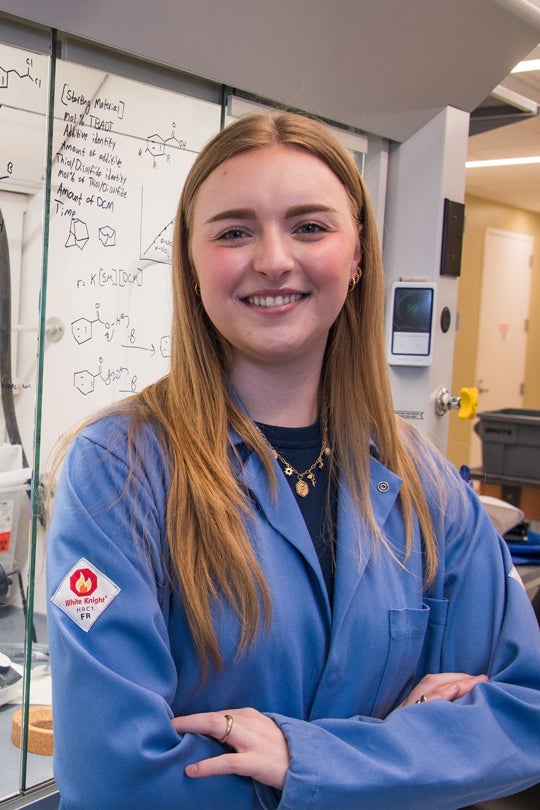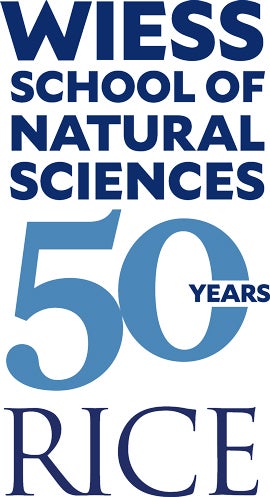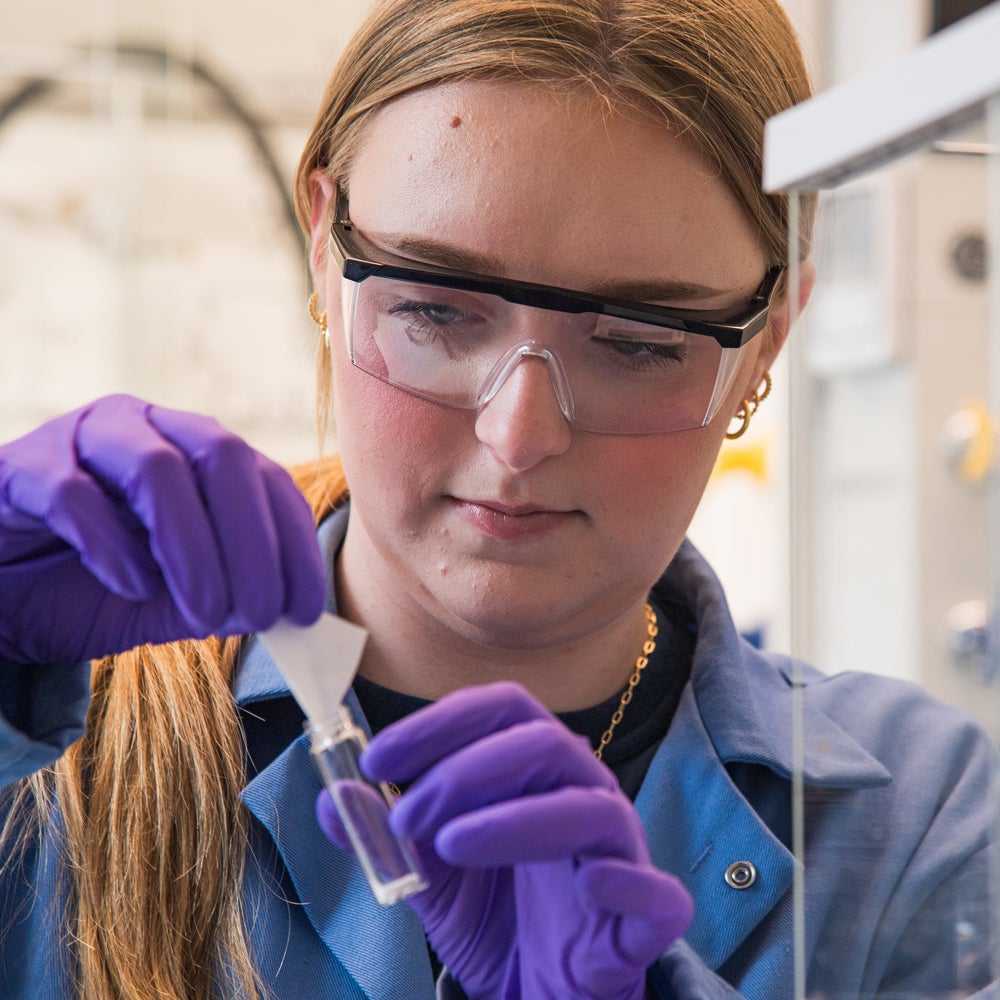
Paige Sutter, a recently graduated chemistry major from Rice, describes her Rice experience in one word: “transformative.”
She worked in Julian West’s research group, helping transform the makeup of various chemical substances. “My focus was on green chemistry method development to make new reactions for synthetic chemists to use that are more environmentally friendly,” she said. This work has broad implications, not only for chemists but also for corporations. “If we find more efficient and environmentally friendly ways to do something, it can save pharmaceutical companies a lot of time and money when they are making a new drug,” Paige explained. “As Dr. West likes to say, ‘We are making the tools for the toolbox of synthetic chemists.’”
Paige has been making good use of her own tools too. Her work developing sustainable methods to form carbon-carbon bonds was published in Organic Letters, a journal published by the American Chemical Society. She was also recently awarded the Paul S. Engel Fellowship and the Arthur L. Draper Award from the Chemistry Department and an honorable mention from the NSF Graduate Research Fellowship Program.
Her research experience with West was also personally transformative. “Research teaches you so much more than what you can learn in a classroom. Learning about it on paper and being able to describe it is one thing, but being able to do it with your own hands is something entirely different,” Paige said. “The research has taught me that sometimes things don't go right — and that's okay. It taught me that failure is a necessary part of the process, and that's how you move forward.”

Such work, however, does not come without its challenges. “It can be challenging to search through the data, but I think it's fun — it's like solving a puzzle. And if you put as many minds on a project as you can, you can solve it a little bit easier.”

Collaboration, in fact, was essential to Paige’s Rice experience. “I just graduated and get to celebrate my own accomplishments, but, as I reflect, I realize that they are not only my own. So many people have been on the sidelines cheering me on, giving me advice and supporting me,” she said. “Collaboration has supported me emotionally, socially and academically. Just working together and approaching problems as a team is super helpful. I think it's one of the most beneficial things I've gained from Rice — and why I wanted to come here — because it's a super collaborative environment. I am happy to say that’s true.”
Although now deeply embedded in the world of chemistry, Paige didn’t start out that way. “When I came to Rice I knew I wanted to do something in the sciences, but I didn't know exactly what. So my first semester here, I took organic chemistry, just to get it out of the way, but I ended up falling in love with the class.”
Reflecting on her journey, Paige says she wouldn’t change a thing. “STEM is not always easy, but it is always rewarding if you are willing to put in the work.”
Next, she will continue her transformation at Emory, where she will pursue a Ph.D. with the goal of becoming a professor of chemistry.
— Sophia Straus ’28

